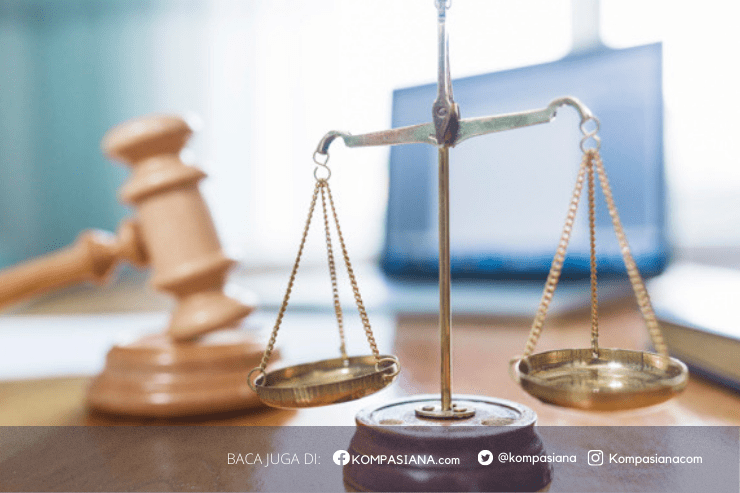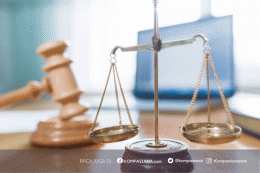State sovereignty over its natural wealth according to Huala Adolf is that a country has rights to use and utilize its natural resources freely and independently, the freedom to determine and supervise potential exploration developments, exploitation, utilization, and marketing of its natural resources, management, and conversion of natural resources in accordance with national development policies and its environment, investment arrangements including regulation of the entry of foreign investment, the activities of investors including the outflow of their investment, the right to nationalize or expropriate property, whether belonging to its citizens or foreign nationals by providing compensation (Adolf, Hukum Ekonomi Internasional Suatu Pengantar, 2015).
In addition to the State having the right to control natural resources, the State also has several responsibilities, such as the responsibility to utilize its natural resources for the welfare of its citizens, to respect the rights and interests of indigenous people, to cooperate with other countries for international development, especially by paying attention to developing countries, to preserve the environment and the sustainable use of natural resources and resources, and to share equitably with natural resources located in areas that are subject to more than one country. For example, oil, gas, water, and other assets, it is the responsibility of the state to treat foreign investors fairly, especially investors who invest in natural resources.
The Indonesian National Economy is regulated in the 1945 Constitution of the Republic of Indonesia, as the highest source of law in Indonesia. In Article 33 Paragraph (3) of the 1945 Constitution of the Republic of Indonesia, it is explained that earth, water, and natural resources contained therein shall be controlled by the State and used for the greatest prosperity of the people. With this respect, Indonesia already has sovereignty over its natural resources in its economic system which is contained in Article 33 of the 1945 Constitution of the Republic of Indonesia.
Sri Edi Swasono in Tri Hayati describes that the word 'controlled' does not have to be interpreted as being owned. The government can control through regulations and economic policies without having to own. Being controlled by the state provides direct instructions that the market mechanism or free price mechanism may not apply in the economy. The most important and the main objective is to safeguard the interests of the state and the interests of the people at large (Hayati, 2015). Mohammad Hatta as a proclamation figure as well as an Indonesian economic thinker, posited on the control and exploitation of Indonesia's natural resources as follows (Hatta, 1979):
"Controlled by the state in Article 33 of the 1945 Constitution does not mean that the state itself becomes an entrepreneur. It is more accurate to say that the power of the State lies in making regulations to smooth the way of the economy, regulations that also prohibit the 'exploitation' of the weak by other people with capital... The ideals embedded in Article 33 of the 1945 Constitution are the maximum production done by the Government... Mainly driven by weak Indonesian workers by way of Cooperatives. Furthermore, the private sector is allowed to direct workers and national capital. If foreign nations are not willing to lend their capital, then they are allowed to invest their capital in our homeland with conditions determined by the Indonesian government itself... the opportunity opened for foreign nations to invest their capital in Indonesia so that they can participate in developing the prosperity of our people, the Indonesian people".
According to Mohammad Hatta, the principle of state authority does not mean that the state is the entrepreneur. However, it can also be managed by national private companies and even foreign companies. The state is given the power to regulate the economy and prohibit the exploitation of the weak by other people with capital. The state as a regulator that has the power must make strict rules against foreign investment when it comes to the interests of the state for the welfare of the people and make rules that are friendly to foreign investment. This means that the interests of the people to obtain the maximum benefit from the exploitation of natural resources must be a priority in opening foreign investment so that foreign investment is only a means to realize the prosperity of the people.
The people as connoisseurs of the results of the utilization of natural resources through the management and exploitation of these natural resources are the main parties in obtaining public welfare as stipulated in the preamble to the 1945 Constitution of the Republic of Indonesia. The people as referred to in Article 33 Paragraph (3) of the Constitution the Republic of Indonesia 1945 can be classified into several groups, namely groups of people as individuals who are autonomous and have rights and obligations specified in the constitution of a country, groups of people as groups or classes which means that people in the understanding of sovereignty are not the people as individuals but the people as a whole which includes various groups in society, and the last, groups of people who ignore the dichotomy based on individuals and groups (Redi, 2014).
According to the classification of the people, either individually, in class groups, or without a dichotomy in the life of the nation and state, the people have the right to obtain their rights as mandated in the 1945 Constitution of the Republic of Indonesia which are regulated in Article 28 letter A to Article 28 letter J, as well as the rights implicitly regulated in Article 33 paragraph (3) regarding the phrase people's prosperity. A phrase that can mean the right of the people to benefit from the wealth contained in the earth and the natural wealth contained therein is controlled by the state. The rights of the people can be fulfilled if the State controls these natural resources and manages and exploits them in accordance with the principle of state sovereignty so that the rights of the people to be prosperous by the State can be realized (Redi, 2014).
The definition of controlled in Article 33 of the 1945 Constitution of the Republic of Indonesia does not stop until Bagir Manan formulates the scope of being controlled by the state or the right of state control as follows (Manan, 1977):
"Control is a kind of ownership by the state, meaning that the state through the government is the only authority holder to determine the right of authority over it, including the earth, water, and natural resources contained therein, regulate and supervise the use and utilization, and investment in capital and the form of a state company for certain endeavors".
In contrast to Bagir Manan, Mohammad Hatta formulated the notion of being controlled by the state which does not mean that the state itself becomes an entrepreneur. More precisely, it is said that the power of the state lies in making regulations for the smooth running of the economy, regulations that prohibit the exploitation of the weak by people with capital.







